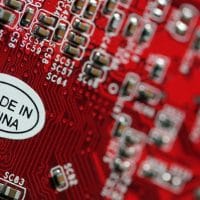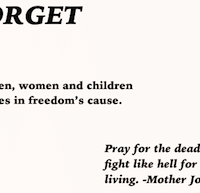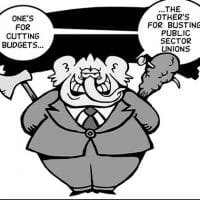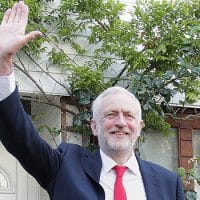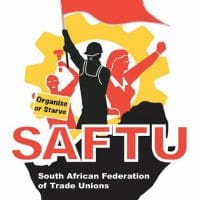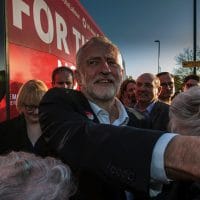-
Land (in) justice in Brazil
The implementation of austerity measures in the Brazilian countryside, then, casts a long shadow on the potential of farming and land reform to provide the next generation with a sustainable future. It threatens decades of progress made by land justice warriors.
-
False promises: Trump and the revitalization of the US economy
President Trump likes to talk up his success in promoting the reindustrialization of the United States and the return of good manufacturing jobs. But there is little reason to take his talk seriously.
-
Land grabs and uneven development in Cambodia
The global labor arbitrage means the only competitive “advantage” available to most countries is forcing workers to accept slave wages and environmental standards low enough to lure in multinationals. If the population resists, the only means available to diffuse it is brutal repression.
-
How bosses are (literally) like dictators
There are three types of work places governments, there are public, private and the other. Public government simply means that the power of the business is spread between the higher ups and the regular employees, while private is where the big guy up top has all the power and the business is his and his alone. The other is everything from family owned and operated to employee owned and opporated. This in turn is how a small government is ran or dictated.
-
IWW Miners of Jerome & Bisbee loaded into cattle cars and deported from state of Arizona
In 1912, more than 1000 working class men, mostly members of the Metal Mine Workers Industrial Union of the Industrial Workers of the World, being loaded into cattle cars in Bisbee, Arizona, July 12th, for the purpose of being deported from the state of Arizona.
-
Toilet tales
Kakkoos (Latrine) is a Tamil documentary that is a powerful indictment of society’s apathy towards the thousands who are tasked with cleaning public toilets and sewers. The filmmaker Divya Bharathi talks about why she made a documentary and what is the task at hand, post its tremendous success.
-
Trump is trying to make NAFTA even worse
Many on the Left have been deeply critical of the North American Free Trade Agreement (NAFTA) since before it was fast-tracked into law by former President Bill Clinton in 1994. Now, President Donald Trump’s current plan to renegotiate NAFTA is poised to make the massive trade deal even worse.
-
Ransacking the public sector
Almost 50% of union members in the United States today work in the public sector. By necessity, they will have to play a major role in the rebuilding of organized labor. But like private sector unions before them, government employee unions face circumstances threatening their very existence.
-
The shifting politics of inequality and the class ceiling
Britain’s class landscape has changed: it is more polarised at the extremes and messier in the middle. The distinction between middle and working class is less clear-cut. The elite is able to set political agendas and entrench their own privilege. The left needs a clear narrative showing how privilege leads to gross unfairness—and effective policies […]
-
Are liberals having second thoughts about immigration?
On June 20 The Atlantic posted an article by Peter Beinart claiming that the Democrats had “lost their way on immigration.” While the article has been lauded by Rightwingers, it is mostly a compendium of familiar sound bites on immigration, presented without much understanding of the issues.
-
Improving our quality of life will require rebuilding union strength
Unions provide workers with voice and the means to use their collective strength to gain job security and say over key aspects of their conditions of employment, including scheduling and safety. These gains are significant in our “employment at will” economy.
-
The general election in Great Britain
When it came to the general election in Britain, everything was settled in advance. The Conservative Party led by Theresa May was supposed to prevail. The Labour Party, victim of its own confusion, its refusal to support the will of millions of members and voters who wanted to put an end to the straitjacket of the European Union, was supposed to be trounced.
-
Rebuilding the American labor movement—the Southern front
The major contradiction for working people in the USA in the 21st century is now abundantly clear: while working for a living is a necessity for the majority of Americans and the wealth of the nation continues to grow, real wages and the number of decent jobs are in steady decline.
-
Corbyn: shifting the possible
While Jeremy Corbyn didn’t become Prime Minister, he did pull off the most stunning upset in recent political history. And he did this by turning out voters who, according to all received wisdom, would never vote, above all the young and poor.
-
The thing about Trump’s infrastructure plan is: it doesn’t really exist
The Republican leaders of Congress killed off Trump’s much touted infrastructure plan months before he even reached the Oval Office. What we are left with is a farce.
-
Visions of Corbyn
In a number of recently posted articles (see here) it seemed clear that a UK General Election upset was in the making, despite the tirade of anti-Corbyn commentary from mainstream media in the UK. Now it has happened.
-
Jeremy Corbyn’s “Dark Past”
This expert has some shocking revelations about @jeremycorbyn‘s past…
-
Let’s Rebuild a Democratic Global Trade Union Movement
This whole project to hollow out institutions has only one aim which is the creation of a predatory state whose only reason for existence is to accumulate and plunder the country’s resources for the benefit of family members of Jacob Zuma, as well as the network of greedy, corrupt families who also benefit from crony capitalism.
-
Labour’s manifesto is a shift to the left: it’s no time for compromises with the right
It must be part of a bold and insurgent campaign based on resistance to racism, austerity and war that focusses on mass rallies and mobilisations. Giving in to the right can only make it weaker.
-
Silicon Valley’s toys contribute to Iran’s 2017 presidential election
With a few days to go to Iran’s upcoming presidential elections on 19 May, six candidates could survive the vetting process of the Guardian Councils.… The role of the media, both in Iran and throughout the diaspora, to shape public opinion is significant. Iranian state media, radio and television are supposed to give the “hopefuls” an opportunity to continue campaigning for office, as they speak about their future plans and defend past performances, but they often fall short.


